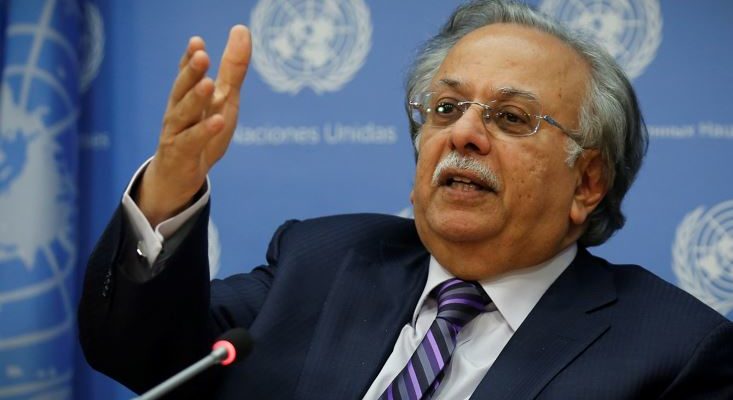The conditions demanded by the Saudis in 2002 have not changed in two decades.
By World Israel News Staff
A recent statement by a senior Saudi official that his country is willing to establish ties with the Jewish State if it retreats to the pre-1967 borders and accepts the establishment of a Palestinian state with ‘East Jerusalem’ as its capital has hit the news, although nothing he said is actually new.
Abdallah Al-Mouallimi, Permanent Representative of Saudi Arabia to the UN, said in an interview with Arab News on Sunday that his country is willing to normalize relations with Israel as soon as the Jewish State accepts the 2002 Arab Peace Initiative, also known as the Saudi Initiative, adopted at the Arab League summit in Beirut.
“The latest Saudi official position is that we are prepared to normalize relations with Israel as soon as Israel implements the elements of the Saudi peace initiative that was presented in 2002 that calls for the end of occupation of all Arab territories occupied in 1967 and the establishment of a Palestinian state with east Jerusalem as its capital and granting the Palestinian people the right of self-determination,” Al-Mouallimi stated.
“As soon as that happens,” he continued, “not only Saudi Arabia, but the entire Muslim world, all 57 countries of the OIC [Organization of Islamic Cooperation], would follow suit in terms of recognizing the State of Israel and establishing relations with her.”
Noting that Al-Mouallimi had recently criticized Israel’s “increasingly aggressive measures in the West Bank [Judea and Samaria] and Gaza” and that “this stance has achieved nothing in decades,” the interviewer asked why things should be different now.
“Time does not change right or wrong,” the Saudi envoy replied. “The Israeli occupation of Palestinian territory is wrong no matter how long it lasts.
“Israeli practices in the West Bank and Gaza…is wrong, and that doesn’t change even if it takes years passing by. So, time has nothing to do with right or wrong.”
Israeli leaders have opposed the initiative as a basis for negotiations with the Palestinians.
The plan was immediately rejected as a “non-starter” in 2002 by then-Prime Minister Ariel Sharon because it was conditioned on an Israeli withdrawal from Judea and Samaria, the Gaza Strip and the Golan Heights.
“As an Arab position, it is progress, and we would like to continue and negotiate,” said then-Deputy Prime Minister Shimon Peres in 2009. “But this is the opening position,” he stressed, not the final word.
Similarly, former Prime Minister Benjamin Netanyahu, in a statement in 2018, said the initiative “includes positive elements that can help revive constructive negotiations with the Palestinians…
“We are willing to negotiate with the Arab states revisions to that initiative so that it reflects the dramatic changes in the region since 2002 but maintains the agreed goal of two states for two peoples.”
There has been no statement issued to date by the Bennett government regarding the Al-Mouallimi interview.




